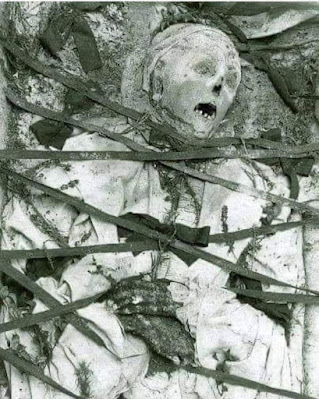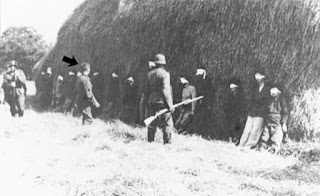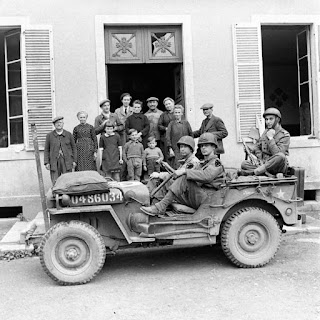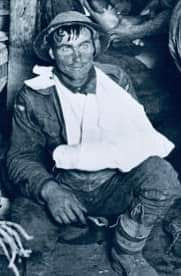What if we had lost the Battle of Britain?
If the Luftwaffe had destroyed the RAF airfields in the South East, and the fighter aircraft had been shot down or destroyed on the ground, to the extent that Local air superiority over South Eastern Invasion ports and beaches had been gained, an invasion could have taken place by paratroopers landing inland and from an invasion force by sea.
The Royal Navy would have been attacked prior to an invasion and forced to retire to Northern bases due to losses or to send its warships to Canada, to continue the fight from there, as plans had been made for this, should it be needed. Some people will point out that Hitler would not have invaded had the Royal Navy waded into the invasion fleet, which is correct-they could not take this chance, and so a prerequisite was to subdue the RN threat by unrestricted bombing, added to E Boat (S boat) torpedo attacks, U-Boat attacks and attacks by German battleship fleets. If the RAF were not able to cover these ships from Stukas and other bombers and fighter bombers and torpedo attacks, then the losses would have forced a withdrawal.
The beginning of the Battle of Britain in July 1940 showed many air attacks on coastal convoys and losses to these, despite RAF fighters battling to protect them, forced the convoys to be stopped in the Channel and re-routed across the Western coastline or the goods to be taken by rail and by road instead. This was an admission that the Luftwaffe had won this phase of the battle, forcing the Channel closed to shipping due to unsustainable losses.
Had the RAF been weakened to the extent that the fighters in the North were sent down to replace the losses, these too would have suffered and Churchill needed to keep other areas and targets defended such as factories and ports and RN dockyards and bases too.
The Battle of Britain involved the whole of the UK as was shown by the attacks on targets in Cornwall, Devon, Dorset right up to Yorkshire, Scotland and Wales, all of the country experienced air attacks at some point in 1940 and that is why, of the 600 to 700 fighters shown operational and available on any day in the Battle of Britain, over half were spread North, East and all over away from the critical 11 Group area.
There were only at best around 300 fighters available in the South East on any day in the Battle of Britain, not all were in action or contacted the enemy every day and losses of aircraft, whilst severe at times, kept pace with manufacturing increases. It was the pilots of fighters that became the limiting factor and training was cut drastically so that pilot replacements were arriving on fighter squadrons with sometimes no time on the fighter they were to fly, sometimes less than ten hours on type and most never having fired the hurricane or Spitfire`s guns at a target.
As Bob Doe once said:"How could they cope? They were struggling to fly the aeroplanes let alone fight in them".
The RAF fighter pilots fought hard in the Battle of Britain and right through November and into December in pure fighter to fighter battles later, from September 1940 and gave no quarter. Most men I talked with had realised that they quite possibly would not survive, having seen friends shot down, burned or go missing, they knew their time might come, despite believing it would not happen to them, it was at the back of their minds, some told me, and they sorted their financial and other affairs so as not to leave a mess for someone to deal with from home.
These fighter pilots of the RAF were young men, with average ages of around 22 but a lot were 18, 19 or 20 also and really just boys with a lot of life still to live-sadly many were cut short from enjoying a life, getting married, having children, grandchildren and a career.
They had to have an acceptance that they might not live, yet knew, in some cases, what they were fighting to prevent and to stop Germans taking over as they had done in Poland, Belgium, Holland, France and elsewhere they had conquered in similar battles. Bob Doe once said:"I did not want them here-it was not right" " I was not fighting for King and Country-I was fighting for my Mum"!
My own view of the Battle of Britain is not the sprawling air combats of late September over London with fighter contrails seen against the blue summer sky. Instead it is of the many pillboxes, hidden bunkers, air raid shelters, the workers in factories, the Blitz and the losses of over 40,000 civilians in Britain to bombing, of the men and women of the fire service many of whom have lost their lives in equally perilous circumstances protecting and rescuing the civilians of this country, of the aircraft factory workers, the ground crews toiling away at night with no sleep, to get a fighter ready that had been damaged in combat, knowing how desperately we needed every one.
We should remember too the sacrifice of lives and the service of the Air Transport Auxiliary who turn 80 next year, for getting the fighters to the airfields to replace losses, in all weathers with no radio or guns. The Battle of Britain was also about remembering the part played by the station personnel on the airfields, the WAAF and other service people enduring raids on airfields, the AA gunners there and in ports and on watch all over the country, the thousands of volunteer Observer Corps personnel, keeping watch and reporting all movements of enemy and friendly aircraft inland once the Radar lost sight of raiders once they had crossed the coast.
My view of the battle as a whole also encompasses the whole of Britain and her people, reading the news, witnessing terrible things, losing loved ones in service or from bombing of a home. I think of the Royal Navy and Army standing by to repel the invaders, of the LDV or Home Guard as Churchill named them, waiting to sell their lives dearly and:"Take one with them!".
The fighter pilots got the glory for the saving of Britain in 1940, I tend to include the Bomber Command and Coastal Command aircrews who not only attacked Axis shipping, Army bases and airfields but also factories and ports and invasion barges and facilities such as the docks and canals-all had an effect on the decision to postpone the invasion.
The Royal Navy and the Army together with all other defenders from the Home Guard and other units stood ready to fight valiantly to defend Britain, should the RAF be unable to hold the Luftwaffe off and an invasion was a reality now.
The fact that these men never had to fight a sea Battle of Britain or a Land Battle of Britain was down to the Royal Air Force in 1940.
That is why we should pay respect to the memory of all who served in 1940 and especially the RAF who prevented the defeat and occupation of this country to Nazi Germany.
Paul Davies




















Comments
Post a Comment